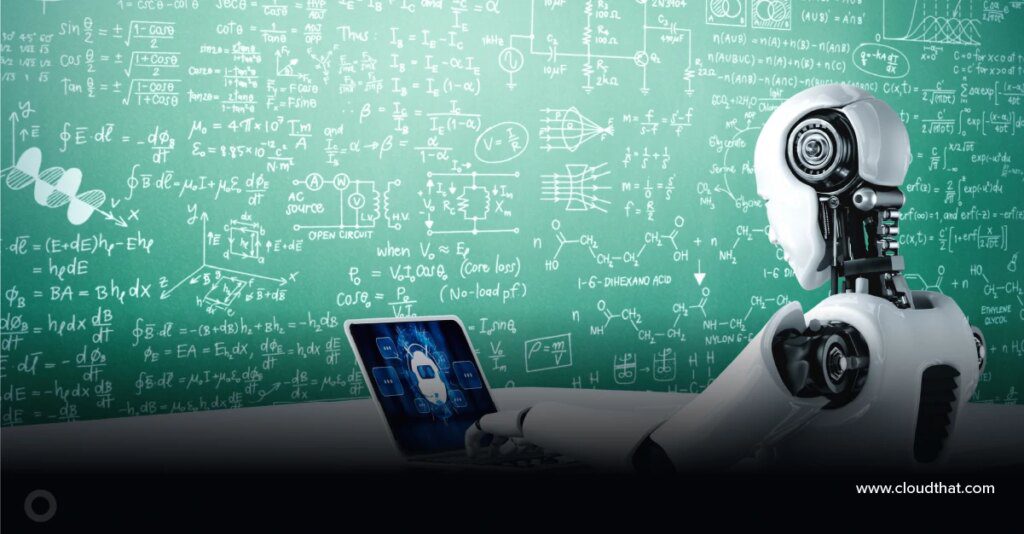Advancements in AI, machine learning, and robotics are transforming various industries and reshaping our lives. AI refers to intelligent computer systems that can perform tasks requiring human intelligence. Machine learning enables computer systems to learn and improve from data without explicit programming. Robotics combines AI and machine learning to create autonomous robots. These technologies have applications in healthcare, transportation, manufacturing, and entertainment. However, challenges such as ethical concerns, workforce displacement, and data privacy need to be addressed. The future outlook for AI, machine learning, and robotics is promising, with greater integration and impact expected across industries. Collaboration is necessary to harness the full potential of these technologies.
Harnessing the Power of AI, Machine Learning, and Robotics in Today’s World
Introduction
Advancements in artificial intelligence (AI), machine learning, and robotics have revolutionized various industries in today’s world. These transformative technologies are creating new opportunities and reshaping our lives in numerous aspects. From healthcare to transportation, from manufacturing to entertainment, AI, machine learning, and robotics are becoming an integral part of our everyday lives. This article explores the power and potential of these technologies and the impact they are making in our modern society.
What is Artificial Intelligence?
Artificial Intelligence, often abbreviated as AI, refers to the development of intelligent computer systems that can perform tasks that typically require human intelligence. These tasks may include speech recognition, problem-solving, decision-making, and visual perception. AI systems are designed to analyze data, learn from it, and make informed decisions or predictions based on the acquired knowledge. This field of study aims to create machines that can mimic human intelligence and behavior.
The Power of Machine Learning
Machine learning is a subset of AI that focuses on developing algorithms and statistical models that allow computer systems to learn and improve from data without being explicitly programmed. By providing computers with the ability to automatically learn and adapt, machine learning enables them to analyze vast amounts of data, detect patterns, and make accurate predictions or decisions based on the acquired knowledge. This technology has been successfully applied in various fields, such as finance, healthcare, marketing, and cybersecurity, among others.
The Rise of Robotics
When AI and machine learning are combined with robotics, a new era of automation and innovation emerges. Robotics involves the design, creation, and operation of robots that can perform tasks autonomously or with minimal human intervention. These robots can be used for a wide range of applications, from industrial manufacturing processes to domestic assistance. By leveraging AI and machine learning, robots are becoming more intelligent, capable of learning from their environment, and adapting to different situations, thereby enhancing efficiency and safety.
Applications across Industries
The integration of AI, machine learning, and robotics is transforming various industries. Let’s explore some of the key applications:
Healthcare
AI is revolutionizing healthcare by improving the accuracy of diagnoses, enabling personalized treatments, and assisting in surgical procedures. Machine learning algorithms can analyze medical data, such as radiological images and patient records, to identify patterns and predict potential health risks. Robotics is assisting surgeons in performing complex surgeries with enhanced precision, minimizing the risk of errors.
Transportation
The automotive industry is embracing AI and robotics to develop self-driving cars, enhancing safety and reducing traffic congestion. Machine learning algorithms enable vehicles to recognize and respond to various road conditions, pedestrians, and other vehicles. Robotics also plays a pivotal role in logistics and warehouse operations by automating tasks such as sorting packages and transporting goods.
Manufacturing
AI and robotics are transforming manufacturing processes by automating repetitive tasks, improving efficiency, and enhancing product quality. Machine learning algorithms can analyze sensor data to detect anomalies and predict equipment failures, allowing for proactive maintenance. Robots are used for assembly, material handling, and quality control, streamlining production lines.
Entertainment
The entertainment industry is leveraging AI, machine learning, and robotics to enhance user experiences. AI-powered recommendation systems analyze user preferences and behavior to provide personalized content across platforms such as streaming services. Robotics is also revolutionizing the gaming industry by enabling interactive and immersive experiences through virtual reality and augmented reality technologies.
Challenges and Considerations
While the potential of AI, machine learning, and robotics is vast, there are several challenges and considerations that need to be addressed:
Ethical Concerns
As AI systems become more autonomous and capable of making critical decisions, ethical considerations arise. Issues surrounding privacy, bias, accountability, and transparency need to be carefully addressed to ensure fair and responsible use of these technologies.
Workforce Displacement
The automation of tasks through AI and robotics may lead to job displacement for certain sectors of the workforce. It is crucial to reskill and upskill individuals to adapt to the changing job landscape and ensure that the benefits of these technologies are harnessed by all.
Data Privacy and Security
AI and machine learning heavily rely on vast amounts of data. Ensuring the privacy and security of this data is critical to maintain public trust. Robust cybersecurity measures must be implemented to safeguard sensitive information and prevent unauthorized access.
The Future Outlook
The future of AI, machine learning, and robotics is incredibly promising. As these technologies continue to advance, we can expect even greater integration and impact across industries. From healthcare diagnostics to space exploration, from personalized education to smart cities, AI, machine learning, and robotics will shape the way we live, work, and interact in the coming years. It is essential for policymakers, researchers, and businesses to collaborate and navigate the evolving landscape to harness the full potential of these transformative technologies.
